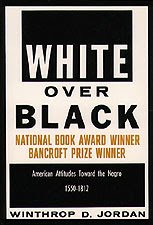 When I was a young boy first playing sports I noticed other members of the team fell into two general categories. There were those who practiced hard and hoped their work ethic and skills would mean the coach would put them in the game. Except for cheering for the team, they stood fairly silently on the sideline when not playing. Then there were the “Put me in coach” kids. They constantly badgered the coach and many coaches relented, inserting them into the game ahead of the silent ones.
When I was a young boy first playing sports I noticed other members of the team fell into two general categories. There were those who practiced hard and hoped their work ethic and skills would mean the coach would put them in the game. Except for cheering for the team, they stood fairly silently on the sideline when not playing. Then there were the “Put me in coach” kids. They constantly badgered the coach and many coaches relented, inserting them into the game ahead of the silent ones. Now these position are taken up by law faculty and law schools. Now please, I am not writing here about someone writing an article and making sure colleagues know it is out or those who send reprints to people in the field.
When in comes to faculty I am thinking of the colleagues who:
1. Purchase 1000 extra reprints far more in the interest of getting attention that in communicating the substance of what he or she has written.
2. Insist that 10 pages of recorded extemporaneous comments are an article to be listed in the “decanal glossy.”
3. Inform the dean every time his or her name is in the newspaper for any reason. (At my school we had someone and may still have (I toss the these communications in the recycling container conveniently located next to the mailboxes.) someone who tallies our “hits.”
These must be the same people who were badgering the coach to “put me in.” All they really do is raise the noise level so it is harder for the coach to know who to “put in.” Luckily, although I have had my issues with most deans, I have yet to meet one who could not see through the fluff. Still, substituting self promotion for substance does not seem very MoneyLawish and there is way too much of it.
While Deans know not to pay much attention to “put me in faculty” they seemed to exhibit the same behavior – not in their personal interests but in what they perceive to be the interests of their schools: Thus we have:
1. The decanal glossy. Yes all those post cards, magazines, newsletters and so on that list the faculty achievements of the year. I really wonder how many of us, when seeing one of these on our mail boxes, eagerly read it, open it or page through. A dean’s report on what the faculty claims to have done in the past year, who the school’s visitors are, or the lectures given there is about as substantive as Cool Whip. That’s not what I am likely to consult if I want to know what is going on. And, judging by the contents of the mailbox recycling container, I am not alone.
 2. Awards. They have become like standing ovations – so common that they mean little. Happily, I can report that my own law school, with the exception of one bizarre award that seems to be created by a crony for another crony, is pretty clean on this. I hear, however, of
2. Awards. They have become like standing ovations – so common that they mean little. Happily, I can report that my own law school, with the exception of one bizarre award that seems to be created by a crony for another crony, is pretty clean on this. I hear, however, of
3. Centers, Programs, Institutes, Workshops, Foreign Programs, I have already expressed my opinion that many of these activities are for faculty and not for
Here again, the “put me in mentality” means a great deal of noise (and the destruction of a few forests) not in the interest of being better but in just seeming to be that way.
(No music link but join me in humming Mathew Ryan’s “I Hear a Symphony”)






 I listened to the
I listened to the 

